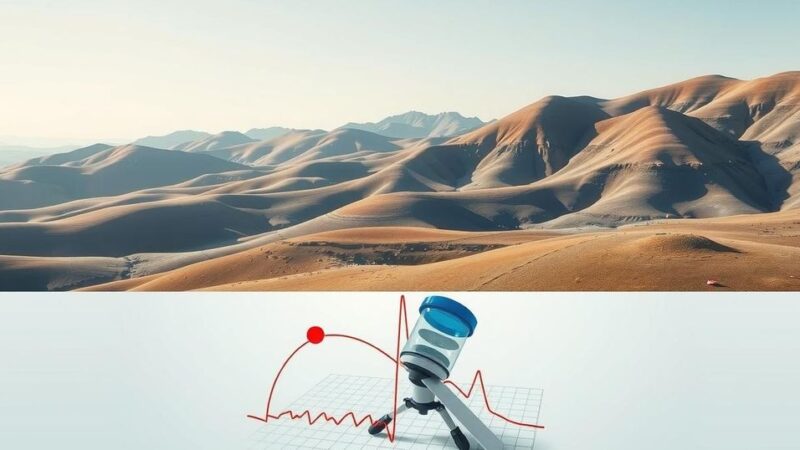A study has disproven claims that an earthquake in Iran was caused by a nuclear test, highlighting the spread of misinformation during geopolitical tensions. Dr. Benjamin Fernando’s research indicates that the seismic event was a result of natural geological processes, emphasizing the need for accurate scientific communication to counter false narratives.
Recent research has discredited claims that a 4.5 magnitude earthquake in Iran was caused by a nuclear test. This misconception spread widely in October 2024 during a period of heightened tensions in the Middle East, fueled by social media as well as certain mainstream news outlets. The study, led by Dr. Benjamin Fernando of Johns Hopkins University, emphasizes the importance of accurately interpreting scientific data during geopolitical crises, warning against potential miscommunication amid international conflicts.
The earthquake, occurring near Semnan, Iran, on October 5, 2024, situated in a seismically active area, was investigated by Dr. Fernando’s team, who analyzed seismic signals that linked the tremor to natural geological processes. They found that the quake originated from a fault where the Armenia and Eurasian tectonic plates collide, and the geophysical characteristics matched previous earthquakes in the region. Their findings definitively ruled out any connection to nuclear testing, a point underscored by Dr. Fernando who stated, “Nuclear tests have very different signatures, which are explosive.”
Despite compelling scientific evidence, claims of a nuclear test emerged rapidly on social media just 17 minutes post-event, exacerbated by misinformation and potentially deliberate disinformation. Initial interpretations of seismic data mistakenly suggested a nuclear detonation. Notably, one of the most shared posts supporting this erroneous theory originated from an account linked to Russian disinformation efforts, magnifying the narrative across various platforms and into news reports globally.
To counter such misinformation, the study advocates for enhanced collaboration among seismologists to swiftly fact-check and correct false narratives. Dr. Saman Karimi emphasized the need for scientific agencies to issue timely reports, thus providing accurate information and suppressing misleading interpretations. Establishing partnerships between social media platforms and verified scientific sources, such as the US Geological Survey, could effectively mitigate misinformation in critical moments.
The findings underscore the need for vigilance regarding the interpretation of seismic events, particularly in politically charged contexts. The research illustrates that accurate scientific understanding is crucial for informing public perception and preventing the spread of harmful misinformation during crises, especially those as delicate as international relations.
The article addresses the misinformation surrounding an earthquake that struck Iran, which was incorrectly attributed to nuclear testing amid heightened geopolitical tensions. The research led by Dr. Benjamin Fernando focuses on clarifying the geological factors behind the earthquake, emphasizing the importance of accurate scientific communication during crises, and highlighting the rapid spread of misinformation through social media platforms.
In conclusion, the research conducted provides a comprehensive debunking of the claims linking the October 2024 earthquake in Iran to nuclear testing. It highlights the need for improved rapid-response mechanisms in the scientific community to counter misinformation and urges collaboration with social media to ensure accurate dissemination of scientific data. Understanding the source of seismic activity is vital for preventing similar misunderstandings in the future.
Original Source: www.news-expressky.com






